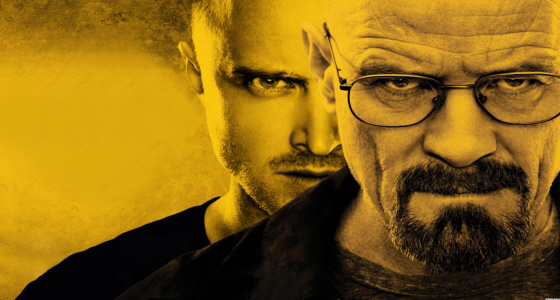
Breaking Bad, created and produced by Vince Gilligan, has been widely acclaimed – the show has garnered numerous Emmy awards (including three consecutive Emmys for the lead actor, Bryan Cranston, as well as one for Aaron Paul as best supporting actor). Along with The Sopranos, The Wire, and Mad Men, many critics have hailed Breaking Bad as one of the best television shows in recent decades. Each work has been praised for elevating the medium of television: they are all self-consciously referential of their literary potential and aspirations. (David Simon, the creator of The Wire, pitched the show as a 60-hour long “visual novel.”) They all advance a particular moral view of the universe and operate in the Dickensian tradition of morality tales and social critiques dressed in the guise of realism.
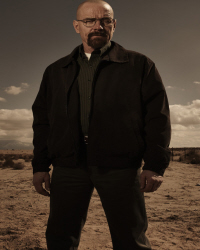 At the heart of the social critique is a question of responsibility for “evil” and where to locate it (even though, of course, none of the series refer to “God” or any religious tradition at all). In The Wire, the responsibility lies with the “game” — the logic of the streets, the logic of politics, the “social facts” that weave an all-encompassing, interconnected web. The Sopranos suggests that the locus of responsibility lies in the unconscious of Tony Soprano; its explanation of “evil” is at heart Freudian. Mad Men largely evades this question; its driving philosophy has little to do with “moralistic” questions of human responsibility but rather the individual’s abiding unhappiness, and how modern capitalism intensifies it. (That a group of libertarians recently threw a “Mad Men” themed party, unironically championing Don Draper as a hero of better times when corporations weren’t “ashamed” of themselves, only underscores the slippery-ness of Mad Men, the manipulability of its message. That, or these particular libertarians don’t know how to read.)
At the heart of the social critique is a question of responsibility for “evil” and where to locate it (even though, of course, none of the series refer to “God” or any religious tradition at all). In The Wire, the responsibility lies with the “game” — the logic of the streets, the logic of politics, the “social facts” that weave an all-encompassing, interconnected web. The Sopranos suggests that the locus of responsibility lies in the unconscious of Tony Soprano; its explanation of “evil” is at heart Freudian. Mad Men largely evades this question; its driving philosophy has little to do with “moralistic” questions of human responsibility but rather the individual’s abiding unhappiness, and how modern capitalism intensifies it. (That a group of libertarians recently threw a “Mad Men” themed party, unironically championing Don Draper as a hero of better times when corporations weren’t “ashamed” of themselves, only underscores the slippery-ness of Mad Men, the manipulability of its message. That, or these particular libertarians don’t know how to read.) Within this quartet, Breaking Bad is most similar to The Wire, and indeed is its twin and mirror image. While The Wire explored how the drug trade decimated black urban America, Breaking Bad looks at how drugs infiltrate the other half: suburban white America. A unifying, coherent philosophy is possessed by each, and both execute it propulsively and faithfully. David Simon likened The Wire to a Greek tragedy, by which he meant that sociology is an omnipotent, merciless god that twirls with the fate of mortals. In Breaking Bad the villain is not sociology, but a human being; what destroys the mortals is not a system, but a fellow mortal. This is a human-centered vision of the origin of evil. It is Old Testament at its core.
That fellow mortal — the one who threatens to destroy us all — is Walter White (played by Cranston). By the end of the pilot, we learn that he has terminal lung cancer. Walt teaches high school and has no way to pay the medical bills. His wife, Skylar (played by Anna Gunn), is jobless and pregnant; his son has cerebral palsy. Walter decides to “break bad” by applying his expertise to something lucrative — cooking meth. He approaches Jesse Pinkman (played by Aaron Paul), a former student and now a petty drug dealer, with a business proposal: Walt will cook, Jesse will sell. Having been abandoned by his parents, and in need of cash, Jesse views Walt as an adult figure with some credible authority. Walt, a brilliant chemist, unsurprisingly becomes somewhat of a Picasso of drugs: his meth is the purest on the market. His product soon dominates the Southwest and, by the middle of season four, Walt and Jesse are making millions.
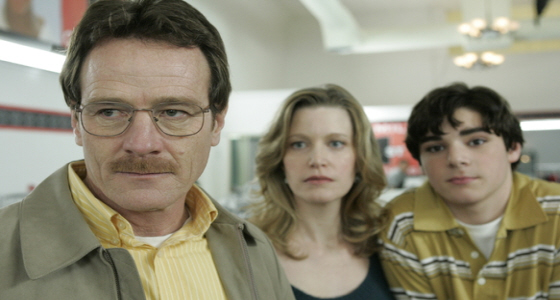
Yet this success comes with deep, irrevocable costs. Of these, perhaps the most heart-wrenching is the damage done to Jesse’s psyche. Jesse, who commences this journey as a misguided but ultimately sweet young man, ends Season Four traumatized, a man unhinged by what he has lost.
In a harrowing scene in that season, Jesse comes to Narcotics Anonymous, which he has been sporadically attending. He has just killed a man — his first kill, which he performed in obeisance to the desperate command of Walt. Jesse is distraught. Jesse has told nobody of the murder. The Group Leader is a man of preternatural calm. Like a secular pastor leading his flock, he begins the session with a familiar mantra:
So the truth is, we can’t change the past. What’s done is done. We got to own our actions, but putting ourselves on trial, acting as our own judge, jury, and executioner is not the answer.
The Group Leader looks at Jesse, hoping to lure him into a response.
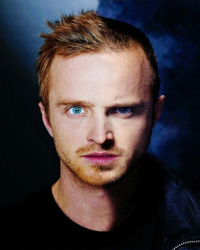 Jesse takes the bait. He tells the group that he looked a dog “straight in the eye” and killed him.
Jesse takes the bait. He tells the group that he looked a dog “straight in the eye” and killed him. Fellow members in the group try to console him, suggesting that the dog “was suffering,” and the act was “a kindness.”
Jesse refuses to be placated. He tells them that the dog wasn’t sick and didn’t bite anyone — it was just a “problem dog.” Anger escalates in the group, as the members try to comprehend Jesse’s seemingly inexplicable violence. (“What kind of person kills a dog for no reason?” says one member.)
The Group Leader attempts to reassert authority over the cacophony: “We’re not here to sit in judgment.”
Yet this line, meant to be one of absolution, jolts Jesse into anguish:
Why not? Why not? […] The thing is, if you just do stuff and nothing happens, what’s it all mean? What’s the point? All right, this whole thing is about self-acceptance […] So no matter what I do, hooray for me, because I’m a great guy? It’s all good, no matter how many dogs I kill — what, I do an inventory, and accept?
Jesse’s speech is, at heart, a soliloquy: it is overheard by others, but the argument is directed at himself. And it is directed relentlessly, unceasingly, repetitively. If the group leader is a saccharine, secular Jesus — all-knowing, all-forgiving, without judgment — Jesse intends to break him, not merely because he wants to hurt him, but to hurt the one idea that may help him. The thing is, if you just do stuff and nothing happens, what’s it all mean? What’s the point? Jesse desires punishment; only punishment will prove that life has meaning.
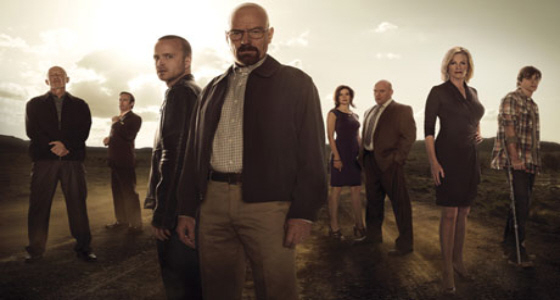
© Los Angeles Review of Books – Used by Kind Permission - - - See more





